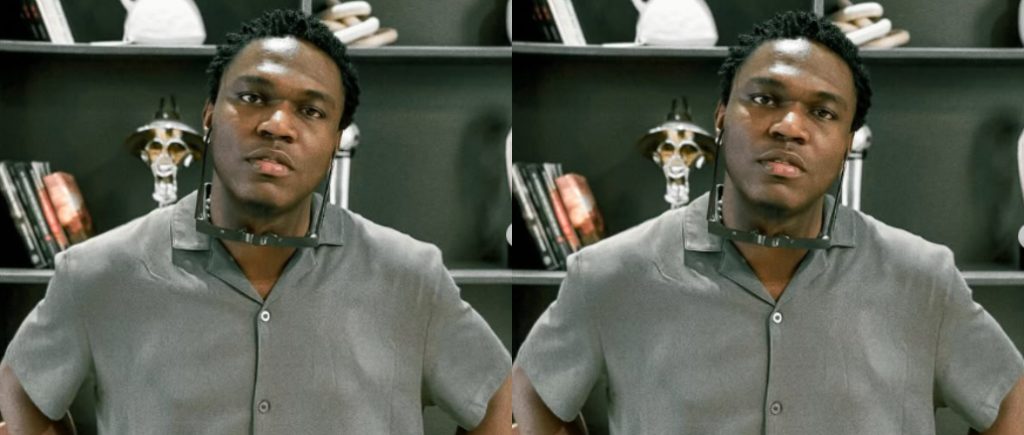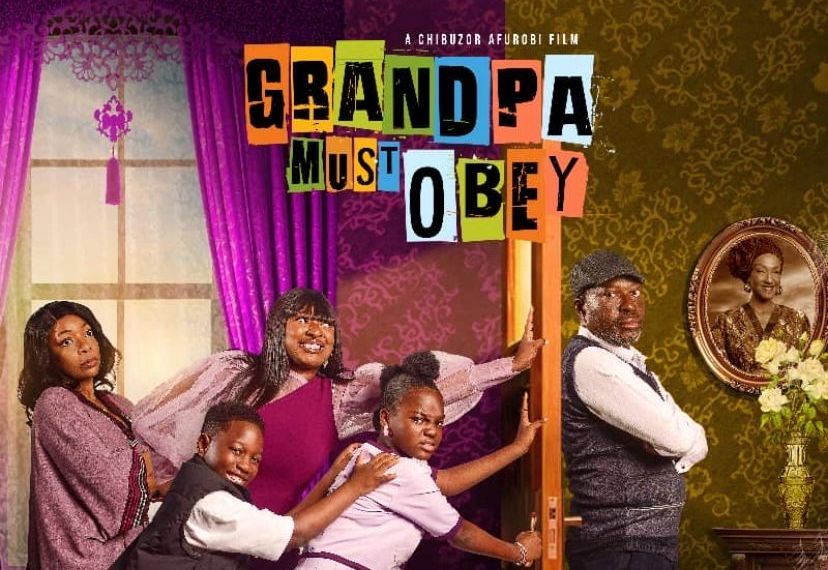Nigerian singer Oludipe David, popularly known as Spyro, has recently opened up about the hurdles he faces as a music artist with strong Christian beliefs — and, in a surprising twist, he claims his toughest critics are those from within the Christian community itself. His comments, which have sparked much discussion on social media and in entertainment circles, offer a candid look at the unique pressures artists encounter when their personal faith intersects with mainstream music.
During a sit-down interview with media personality Frank Edoho, Spyro discussed his experiences since entering the industry. According to the musician, “The biggest problem I have ever had in this industry so far is the Christians, not even the Muslims. I was shocked when I came into the industry because in my head, I’m like, we are family. So when they started giving me, you wear earrings and this and that.”
He explained his viewpoint further, “How do we reach the people outside if we are not with them? The Bible says, ‘Go ye into the world.’ It didn’t say stay in the church.” Spyro’s remarks have started conversations about the role public figures play in representing their faith while also seeking a broad audience, particularly in the Nigerian entertainment industry where religious identity is often a major part of public life.
According to Spyro, his words have frequently been misinterpreted to cast him in a negative light, with some going so far as to accuse him of being contrary to his faith. He said, “Many of my words were twisted to make me look like the devil. Once you come out and you mention this Jesus, there’s always a problem with it.” The singer added that some fellow Christians have even reportedly threatened his career, suggesting there’s an intolerance within the faith community for musicians who blend Afro-pop and Christian themes.
Spyro elaborated, “I’ve noticed that everyone who has stood up to say Jesus, there’s always a problem, which makes me feel like there has to be something to this Jesus. Because if you come out and you say you’re a Buddhist now, nobody fights you, but immediately you come out and you start talking about Christ. So that was the point where my eyes were now opened. Well, I think I’m in for it. I’m here to stay, irrespective of all the threatening messages of ‘we’ll cancel you, we’ll do this, we’ll do that.’” Spyro’s comments reflect broader challenges faced by Christian artists looking to maintain their faith identity while pursuing mainstream genres.
Standing firm in his calling, the “Who is Your Guy” crooner emphasized his belief that his success is divinely ordained rather than the product of public opinion. “I’m like, you didn’t bring me here. God brought me here, and he’s going to sustain me. The Bible says that to be loved, I wish that thou mayest prosper and be healthy. It says God can make all grace abound unto you. You have all sufficiency and all things shall abide unto every good work. So God is interested in your prosperity. The earth is the Lord and the fullness thereof. So, if the earth is the Lord and the fullness thereof, then I should be having the best,” Spyro asserted. His words strike a chord in a country where many look to faith leaders and celebrities for examples of how to balance spiritual beliefs and public success.
According to the singer, the concept of “lifestyle evangelism”—living a prosperous, visible life as a means of witnessing to others—is at the heart of his approach. He stated, “Christ is better preached in a G-Wagon. Christ is better preached in a Lamborghini. The gospel of Christ. That’s lifestyle evangelism. That’s his testimony. I’m not saying that if you’re poor, you can’t preach Christ.” This perspective touches on a continuing debate in West Africa and beyond about prosperity, religion, and the visibility of faith leaders and entertainers.
Spyro claims his material success allows him to draw new followers to Christianity, especially within youth and pop culture circles. “I’ve been able to drag a lot of people to Christ. Because coming down from a G-Wagon and saying Jesus is Lord. It’d be like this. I didn’t like them (diamonds, etc) before, but I had to make it a duty to do them. To show people that you can be in Christ and be successful.” In Nigeria and across Africa, the tension between public displays of faith and modesty is a recurring discussion, particularly as the entertainment industry continues to globalize and as African artists play increasingly prominent roles on the international stage.
The issue of demarcation between gospel and secular music is another controversial topic Spyro touched on: “I don’t have problems deciding where to draw the line between gospel and secular music, but unfortunately, it feels like the audience has that problem on my behalf. I don’t have any trouble being an Afro-pop R&B artist and being a Christian, because they are two different things. I’m a Christian, but my work is as a singer. So in my space, I can use my platform to discuss my faith. Not everybody will be on the pulpit to preach the gospel. Sometimes, you must go into the community and try to get people.”
For many young Africans balancing faith and creative careers, Spyro’s perspective may resonate. Lagos-based music analyst Chidi Nwosu notes, “There’s long been an uneasy relationship between organized religion and popular music in Nigeria, particularly for artists who want to stay true to their faith but also explore their artistry fully. Spyro’s experience is not unique, but it draws attention to the complexities at play for today’s musicians.”
Tracing a historical foundation for faith-led action in public arenas, Spyro referenced the biblical Joseph of Arimathea, who is described as a politician in the scriptures. “I keep saying this all the time, that the Christianity that we are all doing today is a product of a politician, Joseph of Arimathea, who had access to Pilate. Because he had access to Pilate and requested the body of Christ while he was on the cross. If His legs were to be broken, because normally in those days, once you’re on the cross and they break your leg, it means you’re a thief,” Spyro said, pointing to the need for Christians to have representation and influence across all sectors of society, not just within church circles.
“It was a normal person, Joseph of Arimathea, who went to Pilate and said, ‘Give me the body of this man.’ He was the one who did a proper burial for Christ. Jesus had to die three days and be resurrected on the third day for the scriptures to be fulfilled. He was a mere politician who just had power. So, Jesus needs, until today, full soldiers in every industry.” Spyro’s advocacy aligns with growing calls from Nigerian Christian leaders for believers to be visible and active in sectors like politics, media, and entertainment to positively influence societal values.
He also called out what he views as double standards among critics, stating, “Of course, people are just being hypocritical because you don’t go to the bank and say, ‘Give me gospel money, give me Jesus money.’ If we do not enter these sectors to influence them, other people will go there. That’s why we have people doing drugs everywhere now, and no one is talking about it. And if people are out there doing drugs, the level of promiscuity is on another level. Christians are still hiding.” This exposes ongoing debates about societal engagement by faith communities in Nigeria and across West Africa, as the influence of music and media continues to grow.
Local music fans and faith leaders have responded with a range of opinions. While some applaud Spyro for boldly affirming his beliefs and using music as a tool for outreach, others caution against conflating material success with spiritual authenticity. According to Abuja-based cleric Reverend Emeka Okoh, “Faith is about consistency and impact, not about cars or luxury. But we also need to encourage our young people not to hide their faith simply because they are in the limelight.”
Globally, Nigerian artists have long found themselves in the spotlight when it comes to questions of faith. The likes of Sinach, Nathaniel Bassey, and Mercy Chinwo have chosen to focus strictly on gospel music, but musicians crossing between genres like Spyro must navigate more complex terrain. The conversation also echoes wider debates in countries like Ghana and South Africa, where religious beliefs are interwoven with popular culture and contemporary music trends.
As the Nigerian and West African music scene continues to shape global sounds, Spyro’s reflections prompt a broader dialogue about acceptance, authenticity, and the evolving expectations placed on artists. Many young creatives across Africa look to stories like his for inspiration — and caution — as they chart their own paths between tradition, faith, and artistic ambition.
What do you think about Spyro’s experiences and the intersection of faith and music in Nigeria? Can artists freely express their beliefs while appealing to a wide audience, or is this a balancing act that comes with inevitable challenges? Share your thoughts in the comments and let’s keep this vital conversation going.
For general feedback or support, contact us via support@nowahalazone.com.
Let’s connect! Join the discussion on Facebook, follow us on X (Twitter), and see behind-the-scenes updates on Instagram. Your voice matters—join the conversation today!










